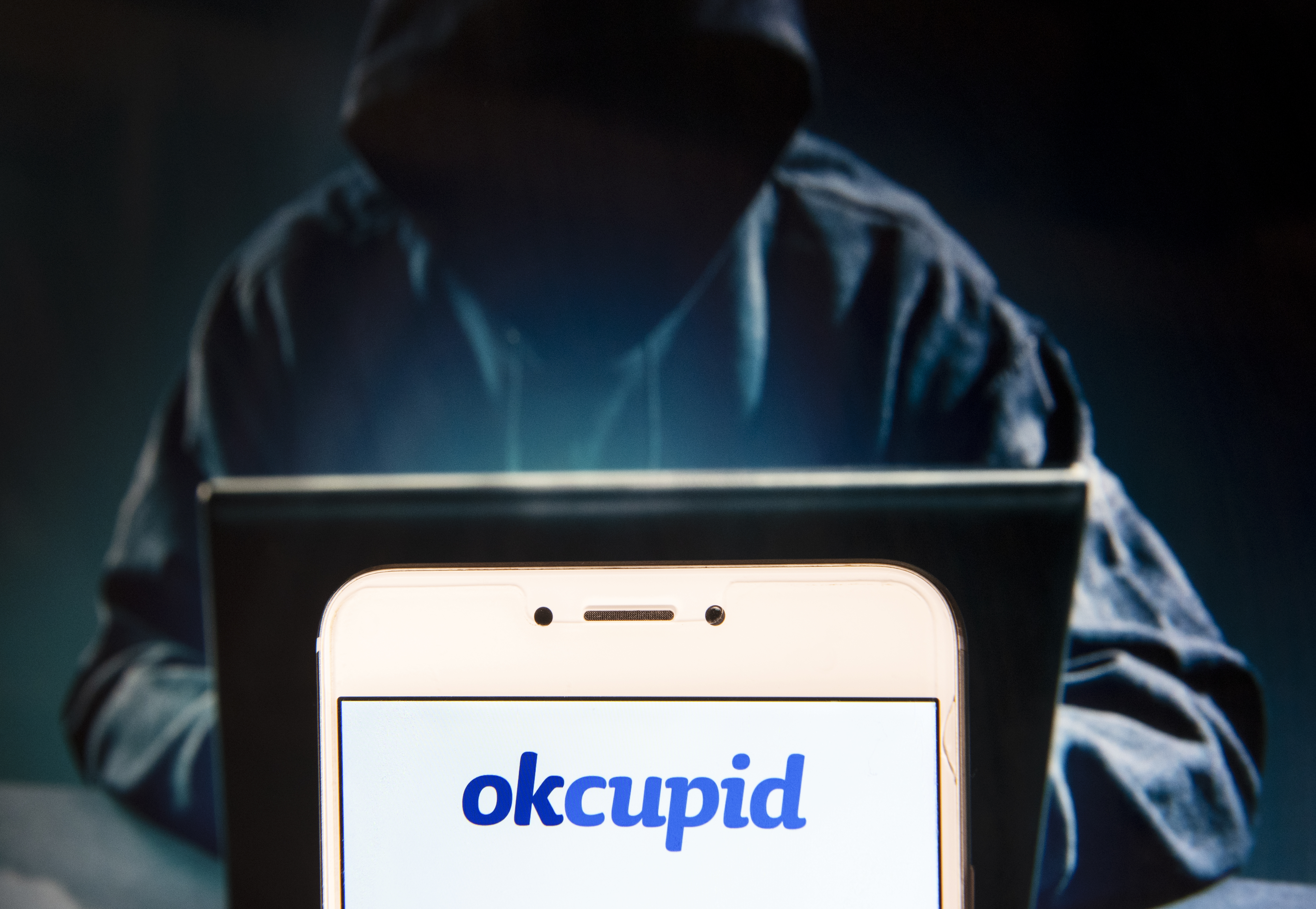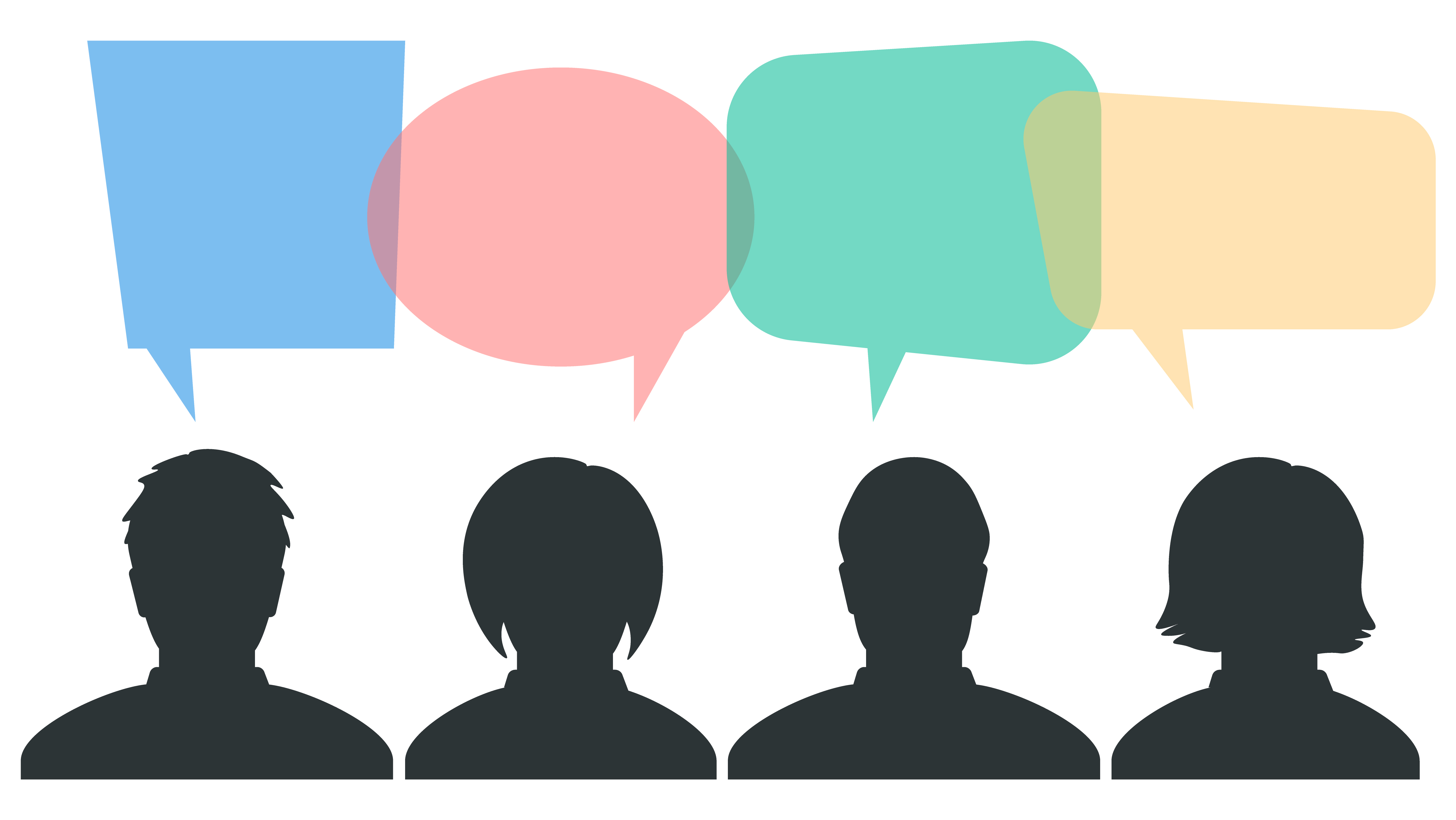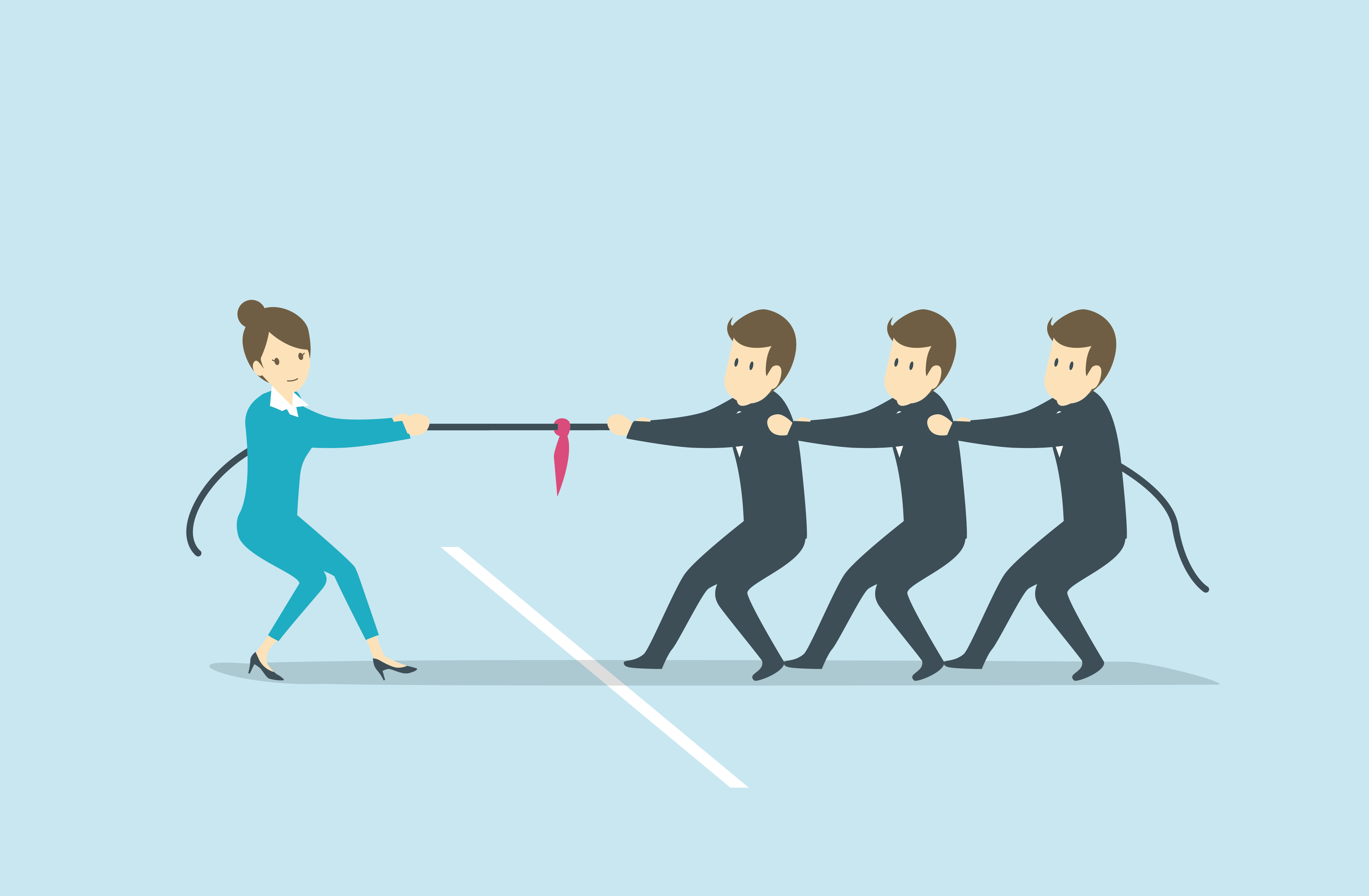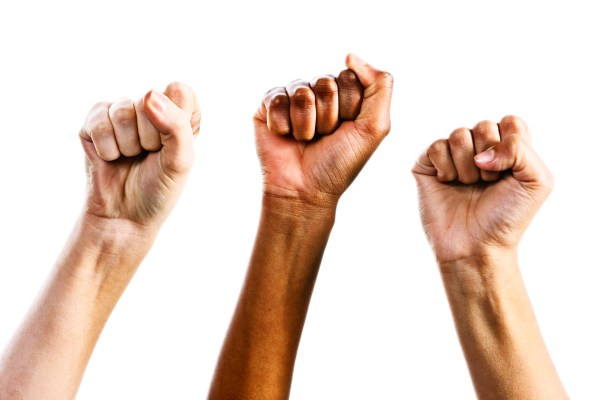“Feminism,” the writer and editor Marie Shear famously said in an often-misattributed quote, “is the radical notion that women are people.” The genius of this line, of course, is that it appears to be entirely non-controversial, which reminds us all the more effectively of the past century of fierce debates surrounding women’s equality.
And what about in tech ethics? It would seem equally non-controversial that ethical tech is supposed to be good for “people,” but is the broader tech world and its culture good for the majority of humans who happen to be women? And to the extent it isn’t, what does that say about any of us, and about all of our technology?
I’ve known, since I began planning this TechCrunch series exploring the ethics of tech, that it would need to thoroughly cover issues of gender. Because as we enter an age of AI, with machines learning to be ever more like us, what could be more critical than addressing the issues of sex and sexism often at the heart of the hardest conflicts in human history thus far?
Meanwhile, several months before I began envisioning this series I stumbled across the fourth issue of a new magazine called Logic, a journal on technology, ethics, and culture. Logic publishes primarily on paper — yes, the actual, physical stuff, and a satisfyingly meaty stock of it, at that.
In it, I found a brief essay, “The Internet of Women,” that is a must-read, an instant classic in tech ethics. The piece is by Moira Weigel, one of Logic’s founders and currently a member of Harvard University’s “Society of Fellows” — one of the world’s most elite societies of young academics.

A fast-talking 30-something Brooklynite with a Ph.D. from Yale, Weigel’s work combines her interest in sex, gender, and feminism, with a critical and witty analysis of our technology culture.
In this first of a two-part interview, I speak with Moira in depth about some of the issues she covers in her essay and beyond: #MeToo; the internet as a “feminizing” influence on culture; digital media ethics around sexism; and women in political and tech leadership.
Greg E.: How would you summarize the piece in a sentence or so?
Moira W.: It’s an idiosyncratic piece with a couple of different layers. But if I had to summarize it in just a sentence or two I’d say that it’s taking a closer look at the role that platforms like Facebook and Twitter have played in the so-called “#MeToo moment.”
In late 2017 and early 2018, I became interested in the tensions that the moment was exposing between digital media and so-called “legacy media” — print newspapers and magazines like The New York Times and Harper’s and The Atlantic. Digital media were making it possible to see structural sexism in new ways, and for voices and stories to be heard that would have gotten buried, previously.
A lot of the conversation unfolding in legacy media seemed to concern who was allowed to say what where. For me, this subtext was important: The #MeToo moment was not just about the sexualized abuse of power but also about who had authority to talk about what in public — or the semi-public spaces of the Internet.
At the same time, it seemed to me that the ongoing collapse of print media as an industry, and really what people sometimes call the “feminization” of work in general, was an important part of the context.
When people talk about jobs getting “feminized” they can mean many things — jobs becoming lower paid, lower status, flexible or precarious, demanding more emotional management and the cultivation of an “image,” blurring the boundary between “work” and “life.”
The increasing instability or insecurity of media workplaces only make women more vulnerable to the kinds of sexualized abuses of power the #MeToo hashtag was being used to talk about.
I guess that was more than two sentences!
Greg E.: You raise the fascinating possibility that the internet is feminizing our culture and communication, making us more likely to adopt characteristics, behaviors, tendencies that we have typically thought of as feminine.

Image via Getty Images / nadia_bormotova
You also show how the Internet has provided the tech industry and society in general with the kind of free labor that has been associated with women, with femininity.
Moira W.: A third layer I was thinking of, which I might add to those two, is the usefulness of highly concentrated monopolistic tech platforms for consciousness-raising. Facebook is a vast machine for detecting patterns, and for classifying us according to various characteristics that we share in common with other people so they can sell ads to similar kinds of people.
Usually we talk about that in a critical light and for good reason, but I became interested in the ways in which that mode of organizing people and information is revealing the systemic nature of certain kinds of social problems.
If I wanted to know about sexism or sexual harassment before the web, I probably would have marched over to the library and looked for a book about sexual harassment, or maybe found a group of other people in person to talk to about it.
The very structure of these platforms, and the fact so many people are on them, makes it possible to search by hashtag or keyword and literally tags people across very different places, as having experiences or traits in common. It’s an incredible diagnostic device.
These platforms are basically massive machines for revealing patterns of oppression that are actually structural. The Me Too moment [showed] at scale that these experiences are not just personal. [People sometimes think,] “maybe if you’d worn a different skirt to that meeting, maybe something different would have happened.” But it happened to all the other people too, so maybe not.
Greg E.: We have traditionally associated the recognition of patterns among people and their relationships with women as well. Right? Men stereotypically go out and walk through walls while women are expected to notice people’s feelings, notice patterns, and notice relationship dynamics in our communities. Without women noticing those patterns, those communities probably wouldn’t be as healthy.
Moira W.: Yeah. There’s a strong sense women are more attuned to context and emotion and certain aspects of social dynamics. The question of nature and nurture is always complicated. I think the answer is always both, and there’s no way to separate them, which is why I usually don’t find it productive to talk about nature. There is no human nature outside society and history.
People whose livelihood depends on being pleasing to people more powerful than them, will probably get better at reading whether they’re pleasing them, in the same way, women have a mental map of which streets are safe to walk on at night and not, in a way that just doesn’t even occur to many men.
I wonder how much of women’s famous ability to take care of people or to be attuned to what other people need isn’t also based in systems of power that have kept women obliged to do that for a long time.
But I still didn’t answer your first question about feminizing [and the media]. We [now] have more popular media that talk more about aspects of life that previously wouldn’t have been thought about as worthy of public conversation.
We also have the growing precarity of people who produce media content: it’s harder and harder to make a living doing it. I think those two things are related, and I was interested in exploring the relationship between them because things are feminized and racialized and then they are devalued. Those two processes happen in tandem.

Image via Getty Images / SEAN GLADWELL
In the very first issue of Logic, we published an article called “JavaScript is For Girls,” about the gendering of coding languages, by Miriam Posner, a wonderful scholar at UCLA. It’s about how as more women learn certain programming languages and start to occupy jobs where they use those programming languages, those jobs come to be paid less. That’s just a fact. Jobs are devalued by having women or people of color are occupying them.
I think feminization goes both ways because when we talk about jobs being feminized, what we usually mean is that they’re paid less and they become more flexible or uncertain. At will contracts with uncertain hours.
Feminization and the economy usually just means the job has become less secure and less high status and more of more associated with soft skills, not what we think of as “genius.” Miriam’s piece [in Logic] literally shows this happening with computing and programming languages. It’s a curious thing — you can be a Twitter celebrity, but that doesn’t pay the bills.
Greg E.: There’s a part of this with which I was surprised at how much I could identify. On the one hand, I grew up very aware of expectations on me to be “manly.” At the same time, I was lucky to have a staunchly feminist mother who made a really compelling case for feminism when I was young.
Since I was a young man, I’ve often gravitated towards areas of life, work, study, and community building that tend to be majority women’s spaces, where women frequently take on leadership roles and where the kind of hyper-masculine behaviors internalized as a kid just wouldn’t be acceptable.
I didn’t have language, until I read your piece, for this idea of “feminine” characteristics we’re all expected to take on more because of the ways that we’re interacting online now. There are some real positives to both men and women adopting more of those behaviors actually, along with challenges you’re describing.
Moira W.: That’s good to hear! And, yes, I do think that there’s an extent to which digital platforms are encouraging all people to take on more “feminized behaviors.” I got into this in my y first book, Labor of Love, a bit. It was a history of dating; I talked a fair bit about dating technologies; apps and how they are transforming courtship but also how they may be linked up with things that had happened in the past.
I remember thinking, when I was working on the book, that with these new kinds of dating apps, you have to make a profile and present yourself, and be charming and funny in messaging, [which put on] straight men a set of expectations that historically have been more associated with women. Even if that strong binary gendering was always sort of false and men were also nervous before dates before OKCupid or whatever.
This idea historically that you had to groom yourself and dress a certain way and present and really kind of package yourself in order to be lovable: for the roughly a century of dating that existed before dating apps, that had been associated mostly with women.
There was an expectation for women to prepare themselves as goods you shop around for on the dating market. It was interesting to see certain kinds of male anxiety and resentment in reaction to basically being asked to perform this kind of work of self-presentation that had always been sort of assumed for women.
There was a [Tumblr] a few years ago called “Nice Guys of OkCupid,” with screenshots of [OkCupid] conversations. A man who was rejected on a dating website would say “I’m a nice guy but …” and then go into some kind of totally violent, misogynistic rant, the sense of being rejected. People would profess themselves to be nice guys and then be incredibly misogynistic and aggressive.
There was also the “Cat Person” story in the New Yorker a year or so ago, featuring a young woman dating a guy who at first seems like a nice guy and then becomes sort of malicious towards the end…

Photo Illustration by Miguel Candela/SOPA Images/LightRocket via Getty Images
Greg E.: Passive aggressive, then ultimately aggressive.
Moira W.: Right. There are many, many things to say about all that, but as a media scholar, what was interesting to me was, these new platforms are actually putting this onus on straight men to engage in all this effort that they historically supposedly weren’t supposed to have to do.
Part of the anger you saw in the Nice Guys of OkCupid was also anxiety and shame around having to perform this work of self curation and selling yourself and presentation that historically has been presented as female.
Greg E.: Part of what men are taught it is to be a man is that we’re meant to be listened to. That what we say should be and will be worth listening to, because we are men.
But today’s social media are more of a level playing field than traditional media were in terms of people’s attention, and men, on average, haven’t learned how to express themselves in ways that would be more compelling and get more attention. We don’t tend to be as good at telling vulnerable stories, or making an active demonstration of the fact that we care about the emotional experiences of others.
I think if more men had those skills they actually would be listened to more, but right now but they often have the expectation that they will be listened to online without practicing those skills, and they get frustrated when it doesn’t happen.
Moira W: I think that’s right.
Like many women on the internet, I get some abuse from male-presenting strangers. ANd it strikes me how often they seem to have this anger that nobody is listening to them. You’re given this platform and told this made everyone a broadcaster, everyone can speak. But the fact that everyone can speak is no guarantee anyone will listen to you.
And indeed women and queer people and people of color provide a majority of the most popular content on a site like Twitter. I think that can inspire a certain kind of male rage and resentment and disappointment–when those platforms didn’t give them the audience that they expected.
Greg E.: In “The Internet of Women” you argue that #MeToo provoked a series of contests over “discursive authority”–over who gets to control what gets to be said in public or not.
Moira W.: That’s right. And of course, it’s not only a feminist contest! We see white nationalists and all kinds of actors using Twitter and other platforms to push the parameters of what is sayable — shifting the frame of public discourse.
In the case of #MeToo, whether it was the Media Men list or that account of the date with Aziz Ansari on that website babe.net, or more recently, the controversy around the New York Review of Books essay by Jian Ghomeshi, and people got very upset about it on Twitter and that led to [former NYTRoB editor] Ian Buruma leaving, what I wanted to describe in the essay is this implicit contest over who controlled what got to be said, [about] experiences that historically have not been represented in what I call the Major Male Magazines.
[These stories] were being talked about on Twitter and getting an enormous amount of attention. Then you saw publications like the New York Times and the Atlantic, Harper’s, coming back and saying, “Oh, that’s a mob.” That the mob is so unreasonable, and here’s what’s reasonable to think about these issues.
I read that as a contest over who’s going to get to control the public sphere. We no longer have the same form of public — the difference between “public” and “private” — that we had when those publications controlled discourse, for better and worse.

Image via Getty Images / Anya Plonsak
Greg E.: You have this great line in the essay, where you sort of indicate that, in a sense of a joke line that-
Moira W.: I like to theorize in the form of jokes.
Greg E.: Successfully! You say Twitter itself is behaving like a “Crazy Ex-Girlfriend.” The ex-boyfriend is the traditional media, right?
Moira W.: Right! I think that that’s absolutely was the tone that was adopted by many. I write in my piece, particularly about the Harper’s Katie Roiphe cover story because that was getting a lot of attention, that was absolutely the tone and you hear again and again, “the Twitter mob.” Another thing that’s very interesting to me in this kind of a side note is the conflation of mobs and censors.
People always say. “The Twitter mob is censoring.” That metaphorical slippage is always been interesting to me because a mob and a censor are two very different things. A mob may have the power to embarrass the person in power, [but] a mob does not have the power to censor.
Again and again, highly gendered ways of characterizing discourse, that people are being irrational and hysterical and emotional on Twitter, were used by Harper’s, in certain pieces of the New York Times, by certain pieces in the Atlantic. I’m not saying no one has ever been unreasonable on Twitter! Of course, people are highly unreasonable on Twitter all the time!
And all sorts of political actors have used its emotional texture to push political changes I find abhorrent. The President of the United States comes to mind. [But] the way in which these legacy media publications tried to dismiss it using that language was very striking.
Greg E.: That’s very helpful, especially because in some of my earlier pieces for TechCrunch, there’s been a lot of conversation about the various social media sites – a number of different takes on them. In my conversation with Taylor Lorenz, a tech journalist for the Atlantic, Taylor is very critical of Twitter, as a platform that allows for a lot of harassment and exploitation and just really bad behavior. What I hear you saying is that you’re not denying any of that.
Moira W.: No, definitely not.
Greg E.: You’re not, but you are pointing out some of the positive things people are doing on Twitter.
Moira W. It’s complicated and it’s both. There are all sorts of terrible behavior on Twitter…
Greg E.: Which Taylor really wants to hold Jack the CEO personally responsible for.
Moira W.: There are at least two levels because there’s the design of the platform technically speaking. Then there’s like content moderation practices. There’ve been many, many examples of Twitter refusing to block or suspend accounts of people who are abusive, who are even self-avowed Neo-Nazis or fascists. So certainly, and I’m glad to have a chance to say it, I don’t mean to say that there are no problems with these social media platforms.
Greg E.: You are one of the best examples I’ve seen of a scholar who is fluent in the most sophisticated kinds of feminist thinking, yet also able translate those very complicated ideas into language compatible with a format like Twitter, where simplicity is key. How did you learn about feminism?
Moira W.: I came to feminism a bit late, in my mid-twenties or so–and in large [part] through conversations with friends. I had a feminist reading group. An extracurricular group with some friends in Yale during graduate school. We started reading texts together, and in some cases writing things together.

Image via Getty Images / Paola Vasquez Duran
Greg E.: What was something that somebody said or shared in that group that made you see yourself differently?
Moira W.: I mean there are certain writers we read together, the classics, like Silvia Federici or Angela Davis; Sarah Ahmed is another great feminist writer who helped me see certain things differently. But it’s less one thing someone said than just like the weight of accumulated experiences.
Nobody wants to think of themselves as a victim. I don’t. I mean, I’m a very lucky person in a lot of ways! But getting older, I started to perceive certain ways in which sexism is real and systemic. Even if your grades are good and you work hard, and so on, you won’t outsmart it at every turn. You can’t.
The 2010s were also an interesting moment [for] the mainstreaming and commercialization of a certain kind of feminism. I always think of Beyonce at the VMAs in 2014, when she gave that big performance in front of the feminist sign, and of Chimamanda Ngozi Adichie, and her book, We Should All Be Feminists, which I like a lot.
I was getting my education at the same moment feminism was becoming trendy and visible in a way that was exciting, like, “Oh, that’s cool that young girls want to wear tee shirts that say FEMINIST .” At the same time [it was] very disappointing. I mean, often the Lean In version of feminism was, if you work on yourself really, really hard, maybe you can oppress other women just as much as the other few rich white men around you do. That version of feminism felt extremely unsatisfying.
Greg E.: How did politics factor in?
Moira W.: Of course the candidacy of Hillary Clinton, and all the excitement and also the debates and disagreements that brought out, was another very fertile period of discussion. Whatever that imperfect but encouraging mainstreaming of feminism was, on November 9th, 2016, we entered a different moment.
When we thought Hillary was going to be President, it felt productive to be critical of Hillary and Sheryl in a certain way. I can only speak for myself, but since 2016, it’s felt a bit more like a period of retrenchment, fighting for basics.
Greg E.: Right now there all these competent and interesting women candidates for the highest office in this country. Sometimes it feels like their voices are getting drowned out or their ideas are being co-opted by male candidates. We’re not immune to that yet by any stretch.
Moira W.: It’s unsurprising and utterly disappointing how, for instance, Warren’s candidacy is being covered in contrast to Beto or Pete Buttigieg. It’s unsurprising to those of us who think about misogyny and feminism [in relation to how] it turns out maybe Elizabeth Warren isn’t likable or presidential.
Greg E.: Maybe none of these women candidates are “likable” because maybe it’s a systemic thing, right?
Moira W.: Exactly. It’s the same old double bind. You’re either too strong or not strong enough. You’re too school marmy and brainy and smart or [you don’t] have enough policies. There’s no way to please many people as a female candidate.

Image via Getty Images / wenmei Zhou
Greg E.: You’re also incredibly knowledgeable about the tech world. How do you see those dynamics playing out in the world of technology? How are women leaders being perceived and engaged within the tech sphere, either in parallel or differently from the dynamic we just discussed in presidential politics?
Moira W.: That’s a great question. Silicon Valley is interesting because it has this history of understanding itself as progressive and having basically liberal democratic politics. At the same time, it is notorious for being a boy’s club–and specifically a white boy’s club.
Not having worked at a tech company, I hesitate to generalize. I’ve been really encouraged by some recent events. I thought the Google walkout was extremely encouraging. The organizers are really impressive; I was especially impressed by how they insisted on talking about sexual harassment as a labor issue and insisted that TVCs, temps, vendors, and contract workers, be included in whatever solutions the company proposed.
In terms of how female tech leaders are seen and whether they fall into those same double binds that we were talking about with regard to female presidential candidates, I’m sure they do. Because women everywhere do! At the same time, it’s important not to place too much emphasis on a few “exceptional” women–leaders and icons.
Someone who has taught me a lot about this was Rachel Melendes, an organizer and one of the co-founders of Tech Workers Coalition: The first time we spoke she pointed out that in terms of the human beings working at big tech campuses, Silicon Valley is actually majority female and majority people of color.
[But] nobody ever talks about the service workers and others who are the majority of humans on tech campuses, and make them run. Any conversation about feminism in Silicon Valley has to include them too — not just the Marisa Meyers and Sheryl Sandbergs.
I think that what we have seen so far has mostly been discursive. That’s a start! In an essay that she published a while ago, the New Yorker writer Jia Tolentino wrote, “discourse is where you plant the flag for battle.” Then you still have to fight. The fact that people are talking about these problems, marks a site for struggle, but doesn’t solve it. I think that’s a good characterization of how to think about these conversations [in terms of] actual power.
Look out for part two of “On The Internet of Women,” my conversation with Moira Weigel of Logic magazine, in which we’ll discuss tech and the future of capitalism, the place of ambivalence in ethics, and Moira’s personal experiences with #MeToo.
